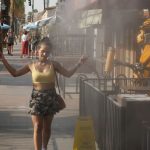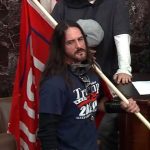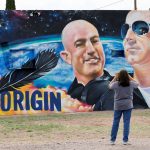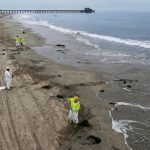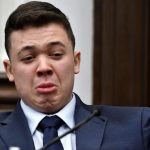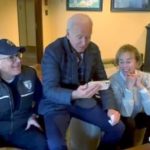A US police officer says he was more afraid while defending the country’s Capitol building against rioters than he was during his deployment to Iraq.
Sergeant Aquilino Gonell was one of four police officers testifying before the House select committee in Washington DC about events on 6 January.
On that day, supporters of then president Donald Trump broke into the Capitol as Congress met to certify Joe Biden as the next president of the US.
Seven people died, including three police officers, and dozens of people were arrested in the aftermath of the attack.
Sgt Gonell, a 15-year police veteran, said the scene had been like “something from a medieval battlefield”.
He said: “On 6 January, for the first time, I was more afraid to work at the Capitol than during my entire army deployment to Iraq.”
Sgt Gonell is a decorated army veteran, having been deployed as a 25-year-old to Iraq, where he spent 545 days and survived a number of attacks.
He told the representatives: “In Iraq we expected armed violence, because we were in a war zone. But nothing in my experience in the army or as a law enforcement officer prepared me for what we confronted on 6 January.”
He said he did not recognise his fellow citizens as they stormed the Capitol or the country they claimed to represent, telling how he and his colleagues were punched, pushed, kicked, shoved, sprayed with chemicals and even blinded with eye-damaging lasers.
He suffered injuries to hands, left shoulder, left calf and right foot. The foot injury has required surgery and he will need further surgery on his shoulder, and has been on medical and administrative leave for six months.
“For most people, 6 January happened for a few hours that day, but for those of us who were in the thick of it, it has not ended.
“That day continues to be a constant trauma for us literally every day, whether because of our physical or emotional injuries, or both.”
Metropolitan Police Daniel Hodges said he was attacked that day, with some of the mob telling him: “You will die on your knees.”
Officer Hodges said that someone had pushed a thumb into his eye, “attempting to gauge it out” and that another rioter “foaming at the mouth” grabbed his gas mask and beat his head against the door with it.
Another police officer, Michael Fanone, said he had been grabbed, beaten, electrocuted with a taser, all while being called a traitor.
He said: “I was at risk of being stripped of – and killed with – my own firearm.”
Speaking about how he and his colleagues had been treated since then, he said: “What makes the struggle harder and more painful is to know so many of my fellow citizens, including so many people I put my life at risk to defend, are downplaying or outright denying what happened.
“I feel like I went to hell and back to protect them and the people in this room, but too many are telling me that hell doesn’t exist or that hell actually wasn’t that bad.
“The indifference shown to my colleagues is disgraceful.”
Jamie Raskin, a Democrat from Maryland and member of the select committee, said to the four officers: “You will be remembered as heroes to our country, along with your fellow officers, and those who attacked you and those who beat you are fascist traitors to our country and will be remembered forever as fascist traitors.”
The committee asked the officers what they wanted from the investigation, to which officer Harry Dunn replied: “It was an attack carried out on 6 January and a hitman sent them. I want you to get to the bottom of that.”




